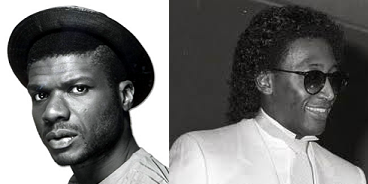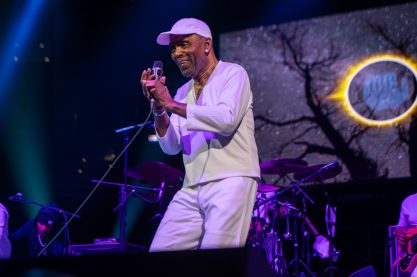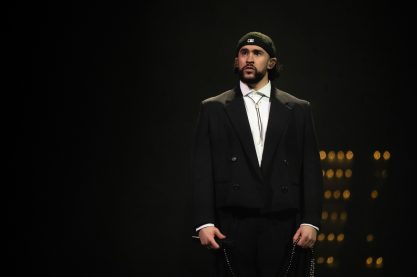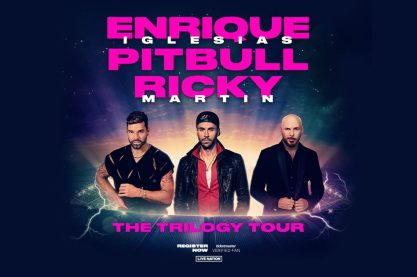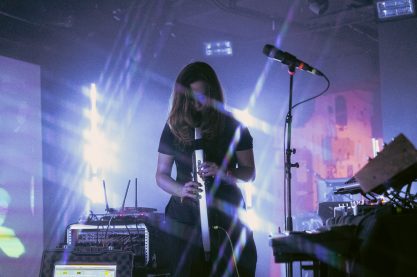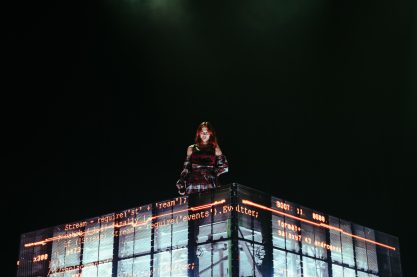Music
APPRECIATION: Larry Levan and Frankie Crocker
I believe that new is boring and that history is inspirational. These opinions are not necessarily the views of the Couch Sessions. “Marcus Dowling appreciates…” celebrates the memories that define the future. Enjoy.
After the days when payola dominated New York rock and roll and ruined the career of legendary DJ Alan Freed, there was a far simpler method involving two influential New York DJs that determined musical stardom in the modern pop era. The place? Incredibly influential post-disco proto-house dance club the Paradise Garage. The DJs? Legendary Garage resident Larry Levan, and the smooth-voiced night-time DJ at NYC's 107.5 WBLS-FM, Frankie Crocker. In Levan's spins becoming Crocker's playlist, FM urban radio became where soul met disco and new wave met heavily synthesized R & B. As 2012 is upon us and history repeats itself yet again, we must appreciate the duo that first made modern radio a place where the dance floor could exist in the boardroom.
[youtube]http://www.youtube.com/watch?v=7Fv-i-C1GIw&feature=related[/youtube]
Frankie "Hollywood" Crocker was a radio iconoclast. After first hearing it at David Mancuso's pre-Disco era New York Loft parties, he introduced the funky intonations of Manu Dibango's Afrobeat introduction "Soul Makossa" into daily radio rotation. Long before the era of Clearchannel's grasp on mainstream radio, New York City radio cosigns defined what the world was hearing. Thus, largely due to the inclusion, the track hit #1 internationally, and the era of Crocker's magic touch defining the future began in earnest. So beloved was the DJ that at the height of the opulent era of Studio 54's four-on-the-floor party dominance, he entered the club astride a white stallion to celebrate his birthday.
[youtube]http://www.youtube.com/watch?v=n3_znZAAeHU[/youtube]
Larry Levan began as a DJ at the Continental Baths, one of the centers of New York City's underground gay dance culture. Alongside fellow later legends DJ Frankie Knuckles and vocalist Bette Midler, Levan developed a style bent of breaking a fresh, eclectic blend of dance-friendly music on an appreciative audience. As the selector's legend grew, he became the resident at the Paradise Garage, a converted Manhattan parking garage that became the center of his greatest development. To his own remixes of disco classics, Levan added a never-ending blend of unique tracks that became pop staples. Then neophytes like Madonna's freestyle-inflected productions by Jellybean Benitez, Taana Gardner's legendary "Heartbeat," and later Garage era international R & B radio hits like Nu Shooz's "I Can't Wait" and Chaka Khan's "I Feel For You" and a plethora of other dance champions owe their mainstream success in many ways to Levan's iconic talents as a selector.
Ever the king of the scene, Crocker was often the only non-DJ allowed in Levan's perch over ten feet off of the floor of the venue. "Trainspotting" (staring over the shoulder of the DJ to identify the artists of songs) Levan, Crocker would add the tracks with the biggest responses to his playlists, mentioning both DJ and venue by name on the radio. It was the ultimate symbiotic relationship, an antiquated practice all grown up as now bedroom DJs are the tastemakers for bloggers who are the tastemakers for DJs who become the tastemakers for larger producers who become the tastemakers for radio. Can it be that it was all so simple then? Absolutely. A return to that norm? Highly unlikely and in many ways unfortunate.
Technology is both it's greatest assistant and most unfortunate complication. Appreciating Frankie Crocker and Larry Levan? A toast to the simplicity of the past, a joyous nod of acknowledgement of the present, and a celebration of how the future ultimately came to be.
